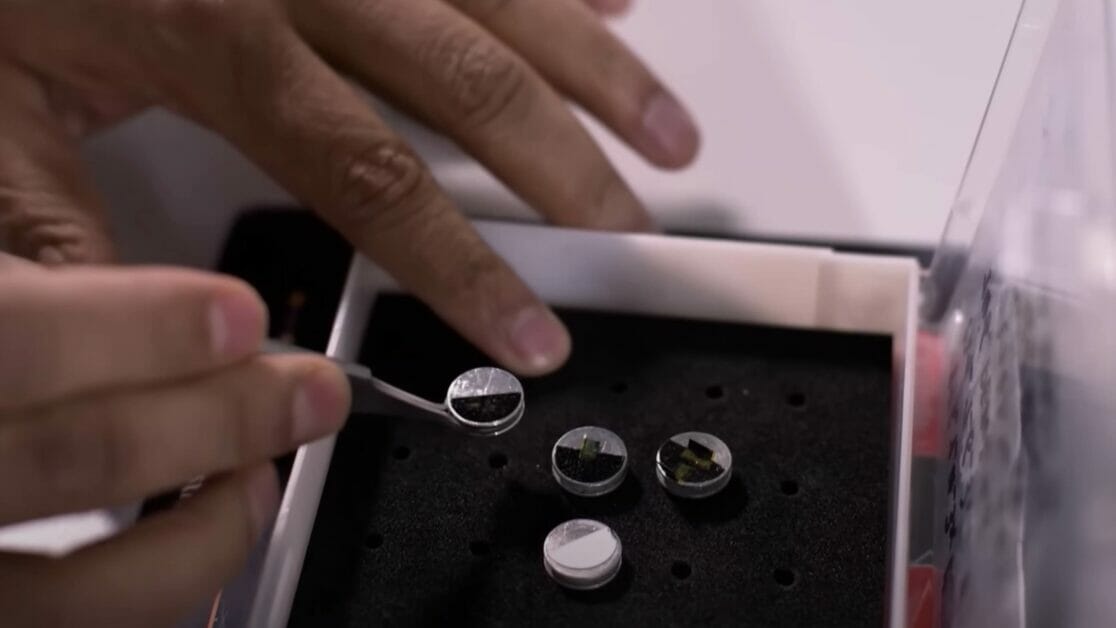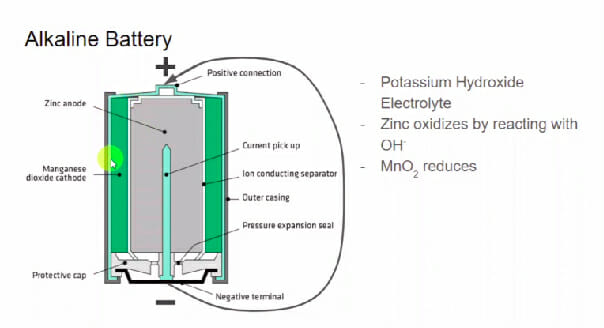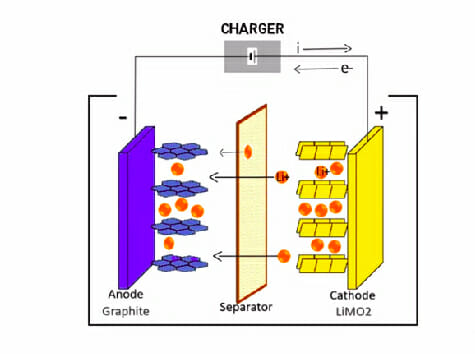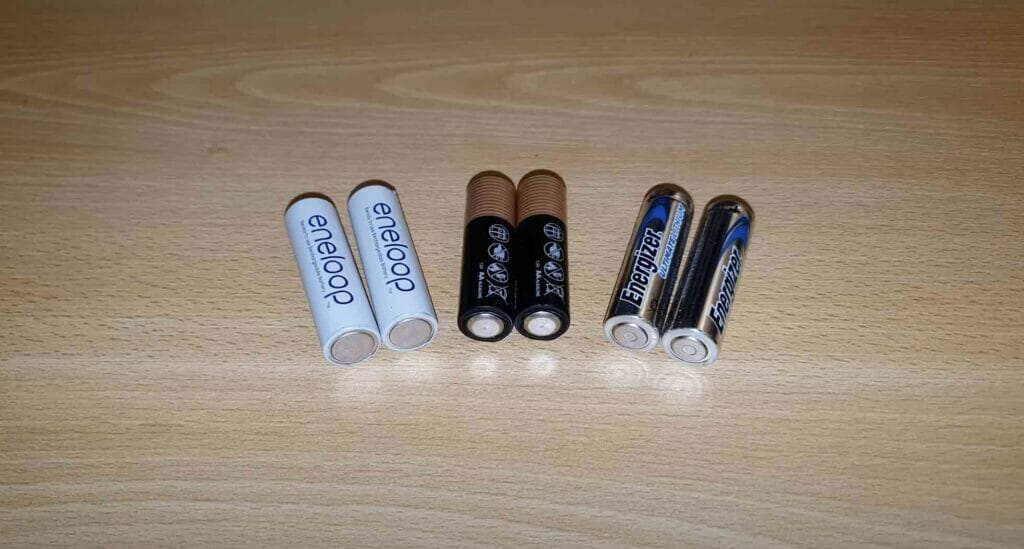Can I Use Lithium Batteries instead of Alkaline?

Is it a good idea to use lithium batteries instead of alkaline ones?
Using batteries that aren’t compatible with your device can cause serious issues. Not only can it damage your appliances, but it can also cause safety hazards. So, if you plan to use lithium cells rather than alkaline, I will explain in what specific situations you can and in which you should avoid them.
Lithium batteries serve as a great replacement for alkaline in many cases.
It depends on the device you’re going to use the batteries for. Generally, any device compatible with AA or AAA alkaline batteries can run perfectly with lithium cells. But you should always check its manual or manufacturer’s recommendations to ensure that lithium is the right type of battery for your device.
Let’s dive into the details below.
Understanding How Lithium Batteries are Different from Alkaline
Both battery types deliver reliable power supply but are different in many ways.
Alkaline batteries are good for your everyday electronic appliances. But, they are non-rechargeable, have a short lifespan, and are disposable. They derive energy from the chemical reaction of their zinc and manganese dioxide electrodes.

On the other hand, lithium batteries are rechargeable and usually last 5X longer. They generate energy through the internal movement of lithium ions (Li+) between the cathode and anode. Meanwhile, electrons travel in the opposite direction, creating an electrical current.

- Lithium batteries have a higher energy density, making them the best options for high-tech and smart devices.
- Unlike alkaline, these cells perform well even in extreme temperatures ranging from -40℉ to 140℉. Meanwhile, the ideal temperature to use alkaline batteries should be between 30℉ to 70℉.
- Lithium batteries are 30% lighter than alkaline cells. So, they are better when used for portable and wireless devices.
- They can remain in storage for up to 20 years without losing power. This is 2X more than their alkaline counterparts.
In short, li-ion batteries outperform alkaline types regarding performance and lifespan.
Can I Use Lithium Batteries instead of Alkaline?
Although lithium is a high-performing substitute for alkaline, it might not be the right option for every device you use.
These cells have a superior energy density of 260-270 wh/kg. So, you can use lithium batteries for devices that demand consistent and rapid power supply. Moreover, any device that supports AA or AAA standard alkaline batteries can function ideally with a lithium-ion type.
However, checking the manual to see what battery type your device is best suited to is the only best idea.
What Devices Are Compatible with Lithium Batteries?
- Digital cameras
- Camcorders
- Smartphones and Tablets
- Portable Gaming Systems
- GPS Devices
- Wireless Headphones and Earbuds
- Handheld Vacuum Cleaners
What Devices are Best Suited to Both Alkaline and Lithium Batteries?
Alkaline batteries are best for low-drain devices. For example,
- Wall Clock
- Smoke Detectors
- Keyboards
- Computer Mouse
- Calculators
- Toys
What Devices Are Compatible with Alkaline Cells?
- Flashlights
- Radios
- Remote Controls
- Electronic Toys
- Portable Fans
- Game Controllers
- Wireless Computer Mouse and Keyboards
5 Reasons to Choose Lithium Batteries over Alkaline

If your devices support alkaline and lithium types, there’s no point in not using lithium batteries.
Here are some of the top reasons to choose lithium batteries over alkaline.
1. Longer Lifespan
The lifespan of rechargeable cells counts significantly on their charging cycle.
While traditional alkaline cells aren’t chargeable, you can recharge modern ones. However, they have fewer recharging cycles, just 10, than lithium batteries. Lithium cells have more recharge cycles than any other battery type we use.
2. Cost-Effective
Though alkaline batteries are cheap, they hardly last longer than 8 to 10 cycles. And then you dispose of it.
Lithium batteries have a longer lifespan and maintain high voltage output throughout their performance. They also have a longer shelf life. You don’t have to worry about lithium batteries losing power even if the device isn’t usually powered on. It can hold its value for a long period in storage.
This makes lithium cells way more cost-saving and reliable for your devices.
3. Light Weight
Lithium batteries weigh about 30% less than alkaline batteries. This is a great advantage of lithium as you can use them for your portable wearables and electric vehicles. You can also get them in different sizes, unlike alkaline types, which usually come in fixed sizes.
4. Better Performance
Lithium delivers a constant power supply even in extremely cold or hot temperatures where alkaline would have stopped working otherwise.
5. Eco-Friendly
Lithium batteries are more environmentally friendly than their alkaline counterparts in many ways.
- Alkaline types are disposable cells. You can’t easily recharge them after using them a few times and will have to discard them once discharged.
- They often leak potassium hydroxide. It’s a caustic agent that harms nature, your health, and your devices.
- Lithium batteries, on the other hand, consist of 90% raw material that you can recycle. Not to mention they are rechargeable too.
- All these features make lithium batteries an economical alternative for applications that run on alkaline batteries.
FAQs
1. Can I Use Alkaline and Lithium Batteries Interchangeably?
No, alkaline and lithium batteries shouldn’t be used interchangeably. Their features are different, and they deliver varying voltage outputs. So, frequently exchanging or mixing these two distinct types of cells in the device can cause them to malfunction.
2. What Happens If I Use Lithium Batteries on a Device that says Alkaline?
Nothing will happen if the voltage requirement corresponds. But, using high-voltage lithium cells on a device that requires a specific low-voltage supply carries a risk of damaging it. It can overheat components, causing them to fail. In the worst-case scenario, it’s likely to catch fire and pose a safety risk.
3. Are Lithium Batteries Hazardous?
Lithium batteries can be hazardous if not stored, disposed of, or used properly. Usually, when exposed to extreme heat, crushed, or punctured, lithium cells can explode or release toxic fumes.
References
Lithium-ion Batteries. https://ul.org/research/electrochemical-safety/getting-started-electrochemical-safety/what-are-lithium-ion
Video References
DW Documentary
Owl WiS
William Zhang
HappyDude
